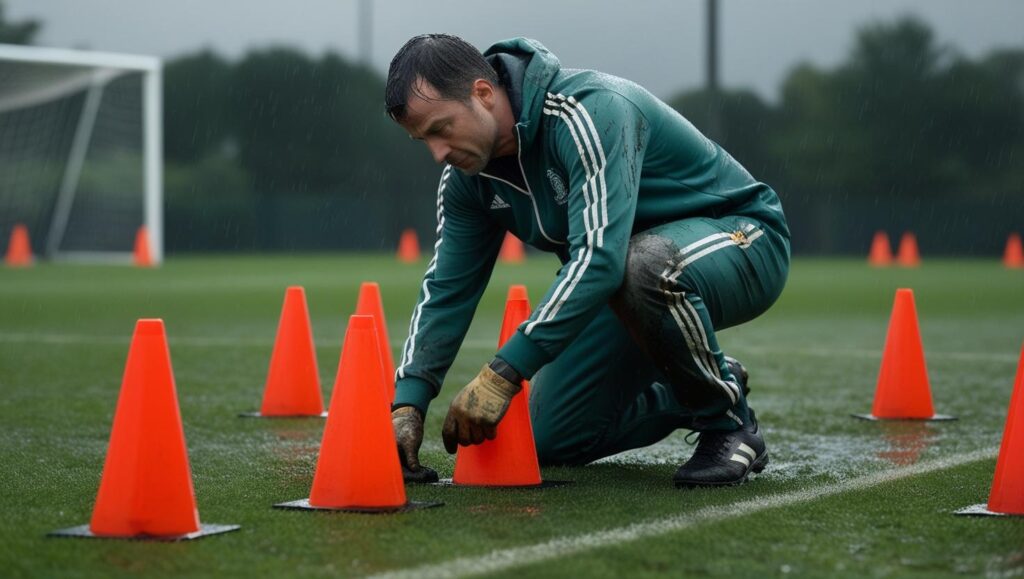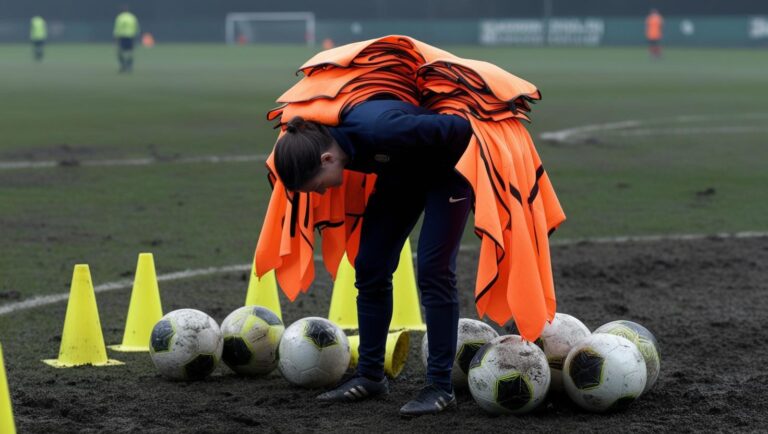
By Club Legends’ Digital Content Creator and Chief Sports Writer – Tony Clark

Without volunteers, grassroots football, rugby and – quite frankly – every single other sport would collapse overnight.
These unsung heroes give their time, energy, and even their own money to keep the game alive – yet their efforts often go unnoticed.
Gone are the days when volunteering just meant running the tea hut or washing kit – though you’ll still find a few living legends doing exactly that. Today’s grassroots volunteers take on a huge range of responsibilities, often with little recognition.

Today’s volunteers are the backbone of community sports, juggling vital roles such as:
Many of these roles demand professional-level skills. Secretaries manage online registration systems and beyond, while treasurers deal with the likes of sponsorship agreements and gift aid declarations.
The FA estimates that volunteers contribute over 150 million hours annually to grassroots football – the equivalent of £1.2 billion in economic value. Without them, the game simply wouldn’t happen.
But this increasing responsibility comes at a cost. Clubs are struggling to attract new volunteers and keep existing ones from burning out.
Grassroots clubs across the country are battling the same issues. Here are some of the most common – and what clubs can do to ease the burden:
Volunteer Burnout
📉 Volunteers often juggle multiple roles, from coaching to running social media accounts. With too few people doing too much, burnout is a serious risk.
✅ Solution: Use tools like Spond to share responsibilities more evenly. Spond helps clubs manage schedules, communicate effectively, and streamline admin — all without adding extra burden on key people.

Recruitment Struggles
🧲 Convincing new people to step up is tough, especially when the role sounds demanding and time-consuming.
✅ Solution: Run “try-before-you-commit” events to show people that volunteering doesn’t have to mean sacrificing all their free time. Schools, colleges, and community groups can also be goldmines for new recruits.
Financial Pressure
💰 Volunteers often end up funding clubs because there’s nobody else to take on the work. Many dip into their own pockets for kit, equipment, or travel costs — an impossible demand with things the way they are right now.
✅ Solution: Go and get funding! The Football Foundation offers grants up to £25,000, while the National Lottery Community Fund supports smaller community projects.
Keeping Up with Technology
💻 Clubs often struggle to embrace digital tools that could make their lives easier.
✅ Solution: Platforms like Spond* simplify admin, from fixture scheduling to fundraising. It’s free, too – a no-brainer for time-stretched clubs.
*Incidentally, we’re not sponsored by Spond.

Training and Development
🎓 From safeguarding to first aid, volunteers often need certifications to fulfil their roles. For many, this feels daunting — and costly.
✅ Solution: The FA offers accessible training resources, while the Barclays Community Football Fund provides £500 grants to support coaching qualifications.
By taking small steps – whether that’s embracing new technology or encouraging parents to help out – clubs can ease the burden on their volunteers and future-proof their survival.
Despite the challenges, volunteering can be hugely rewarding. Here’s why:

Personal Growth
📈 Volunteering builds confidence, leadership, and communication skills. Research by NCVO found that 77% of volunteers reported improved mental well-being, while 68% felt it boosted their career prospects.
Community Impact
⚽️ One grassroots volunteer creates opportunities for an average of 8.5 additional players, according to Sport England.
Stronger Social Bonds
🤝 Volunteering fosters friendships and creates a strong sense of belonging. Research by Sport England shows that sports volunteers are 10% more likely to feel connected to their community than non-volunteers.
Inspiring Role Models
🌟 By volunteering, parents and community members set an example of dedication and teamwork. Research from The Youth Sport Trust highlights that kids who witness positive role models in sport are more likely to develop resilience, leadership skills, and improved self-esteem.

Volunteering is massively hard work, but it’s also hugely rewarding. Clubs that pull out all the stops to value and support their volunteers will not only survive – they’ll thrive.
By sharing responsibilities, embracing digital tools, and showing appreciation, clubs can build a happier, stronger volunteer network – one that will keep grassroots football thriving for years to come.
Are you a grassroots football volunteer? Share your tips, frustrations, and success stories in the comments👇